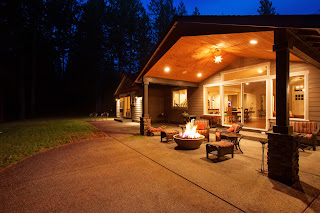What Do I Need to Know About Mulch in Boise, ID
What is the purpose of mulch?
Mulch serves several purposes, all of which are beneficial for your property:
Retain moisture: Especially in a climate as arid as Boise, using mulch to retain moisture can reduce the need for frequent watering, which is simultaneously good for the environment and good for your water bill. By helping keep water locked in and close to the roots, you can reduce water loss due to evaporation.
Temperature control: Much like using insulation in a home, mulch provides a layer of insulation for the roots of your plants. Mulch regulates soil temperature and keeps it cooler in the summer and warmer in the winter, which helps protect your plants from shock and encourages healthy plant growth.
Weed suppression: Fighting against weeds is a chronic and often exhausting process. Mulch prevents light from reaching the soil, which means less weed seeds can germinate, helping you to maintain a flowerbed that sports just the plants you intended to be there.
Improve soil structure: Mulch can be an organic material, so it will break down with time. The indigenous soils here in Idaho typically need more organic matter, so mulch can improve that soil’s structure, texture, and fertility, which can improve your odds of successfully growing the garden of your dreams.
Prevent erosion: I think we can all agree that we have seen an insane amount of precipitation this year. Mulch prevents soil erosion because it creates a buffer between the ground and wind, rain, or hail that could contribute to erosion.
Aesthetic appeal: Mulch can be the cherry on top to create that picture perfect property. Mulch can be a fast way to give your yard a facelift and achieve a put-together look without a massive project.
What different types of mulch are there?
Broadly speaking, mulch can be categorized into two types: organic and inorganic.
Organic mulch is typically the preferred option. Because it’s composed of organic materials such as leaves, wood chips, straw, grass clippings, and other plant debris, it adds nutrients to the soil as it breaks down, much like compost. On the flip side, because it does break down, organic mulch should be refreshed every one to two years, so it does require a little more maintenance and care.
Inorganic mulch is typically made of stones, gravel, rubber, or plastic, and is preferred in instances where erosion might be a bigger issue, or where the priority is to have a long-lasting, low-maintenance mulch. Most gardeners prefer organic mulch specifically because of the positive impacts organic mulch has on soil fertility, as well as its more natural appearance, but some more industrial businesses may prefer inorganic mulch in certain cases.
How do I apply mulch?
First off, consider your unique situation, and make sure you select a specific mulch that is appropriate for your plants and soil. Mulch that is composed with a lot of pine needles will be more acidic, so this would be a good option for plants that prefer acidic soil, whereas hardwood mulches are better for plants that prefer alkaline soil.
Mulch should always be spread evenly around the base of your plants. As a general rule of thumb, apply a 2-3 inch layer of mulch for the best results. Applying too much mulch can lead to some problems, such as soil compaction, root rot, nutrient deficiency, pest and disease problems, and overwatering.
It’s an excellent time of year to be thinking about mulch! Whether you are designing your landscape or implementing final touches to your property, our experts at Bella Vista Landscape are here to help! We serve clients in Boise, Meridian, Nampa, ID, and all surrounding areas. Give us a call at (208) 995-3532 or fill out our online contact form for more information today!




Comments
Post a Comment